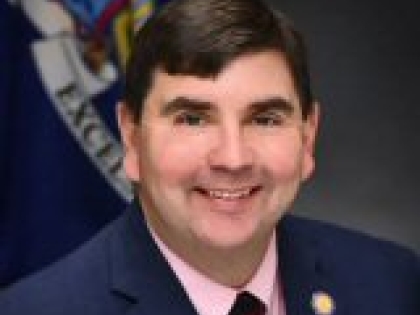
Op-ed: Patients with disabilities deserve convenient, timely dental care. Here's how it can happen.
The state must support specialized training for dental students to better serve this population
Imagine contacting a dentist office to schedule an appointment and finding out there is an extensive waiting list and it might be two years before a slot becomes available.
Many don't have to imagine that scenario. It is the unfortunate, disappointing and unacceptable reality people with developmental and intellectual disabilities face.
To maintain good oral hygiene, such people not only need support in daily activities but also specialized approaches to dental care check-ins.
Ordinarily, scheduling a routine dentist appointment is easier than trying to get into a specialist's office. But for many with intellectual and developmental disabilities, dentist appointments are specialized appointments—ones that require personal preparation, patience and a spot on a long list among others awaiting care.
Demand exceeds supply
Because of the specialized training required, demand for the specialists exceeds the supply. A 2021 survey by the Office for People With Developmental Disabilities' Task Force on Special Dentistry found that no region of New York state has the capacity to treat people with severe to profound intellectual disabilities, many of whom require care in hospital settings.
That ultimately creates long waiting lists and forces people with intellectual and developmental disabilities to wait years for a simple appointment. Some travel hours for an appointment that should be routine.
That is why we have called on the state to support an initiative to train dental students to provide care to patients with intellectual and developmental disabilities. One of us, state Sen. John Mannion, recently proposed allocating $750,000 for dental fellowships to kick off the effort. The fellowship, successfully piloted last year by the New York State Academic Dental Centers, would create a pipeline of young dentists prepared to meet the disabled community's needs.
According to a 2012 study by the University of Rochester focused on New York Special Olympics athletes, nearly 30% of people with developmental and intellectual disabilities need urgent dental care or have untreated tooth decay.
When those health needs are delayed because of a lack of trained professionals, they lead to the catastrophe we have now. For too long, the disparity in treatment has been ignored, or consolidated to an individual level and separated from policy initiatives.
Funds for training
The first step in boosting the sector and making it more inclusive of people with disabilities is training and increasing the number of professionals providing dental care for them. The proposed funds would be used to create a fellowship in each of the state's six accredited dental schools.
Investing in such programs in support of people with disabilities is simply the right thing to do, but it also provides opportunities to create jobs, leverage local expertise and forge a new path for our schools to become leaders in the dentistry industry. There is a nationwide shortage of dentists trained to support patients with disabilities, opening the door for our six dental schools to evolve into leaders in the field.
We believe in our community. We have the students to make the effort succeed, and we have the foundation within our dental schools to make it work.
At its core, the fellowship investment can alleviate the damaging reality of not having enough dentists to care for people with disabilities. It's about making sure that individuals can get the dental care they need. It's about diversity, equity and accessibility.
John Mannion is a New York state senator. Jonathan Teyan is president of New York State Academic Dental Centers.